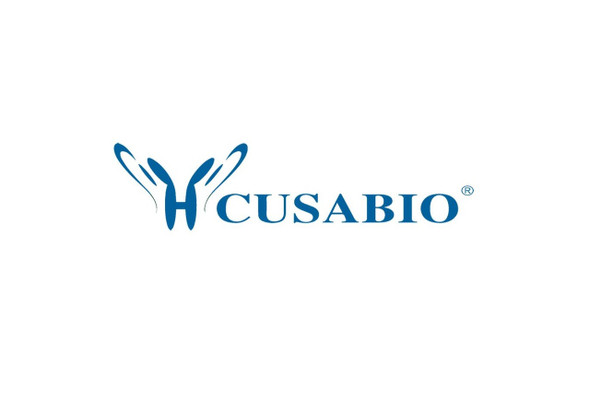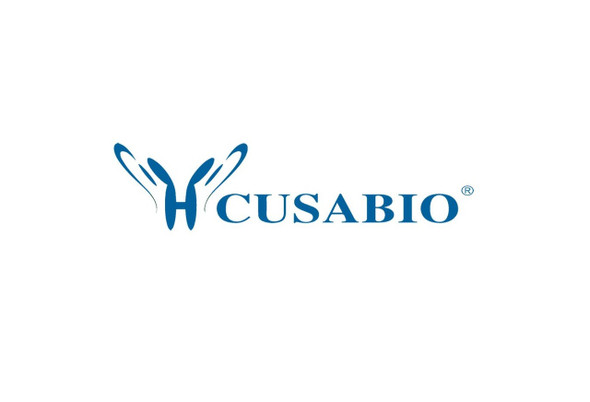Cusabio Human Recombinants
Recombinant Human E3 ubiquitin-protein ligase TRAIP (TRAIP) | CSB-EP866296HUa0
- SKU:
- CSB-EP866296HUa0
- Availability:
- 3 - 7 Working Days
Description
Recombinant Human E3 ubiquitin-protein ligase TRAIP (TRAIP) | CSB-EP866296HUa0 | Cusabio
Alternative Name(s): RING finger protein 206 RING-type E3 ubiquitin transferase TRAIPCurated TRAF-interacting protein RNF206, TRIP
Gene Names: TRAIP
Research Areas: Others
Organism: Homo sapiens (Human)
AA Sequence: MPIRALCTICSDFFDHSRDVAAIHCGHTFHLQCLIQWFETAPSRTCPQCRIQVGKRTIINKLFFDLAQEEENVLDAEFLKNELDNVRAQLSQKDKEKRDSQVIIDTLRDTLEERNATVVSLQQALGKAEMLCSTLKKQMKYLEQQQDETKQAQEEARRLRSKMKTMEQIELLLQSQRPEVEEMIRDMGVGQSAVEQLAVYCVSLKKEYENLKEARKASGEVADKLRKDLFSSRSKLQTVYSELDQAKLELKSAQKDLQSADKEIMSLKKKLTMLQETLNLPPVASETVDRLVLESPAPVEVNLKLRRPSFRDDIDLNATFDVDTPPARPSSSQHGYYEKLCLEKSHSPIQDVPKKICKGPRKESQLSLGGQSCAGEPDEELVGAFPIFVRNAILGQKQPKRPRSESSCSKDVVRTGFDGLGGRTKFIQPTDTVMIRPLPVKPKTKVKQRVRVKTVPSLFQAKLDTFLWS
Source: E.coli
Tag Info: N-terminal 6xHis-tagged
Expression Region: 1-469aa
Sequence Info: Full Length
MW: 58.8 kDa
Purity: Greater than 85% as determined by SDS-PAGE.
Relevance: E3 ubiquitin ligase acting as a negative regulator of innate immune signaling. Inhibits activation of NF-kappa-B mediated by TNF. Negatively regulates TLR3/4- and RIG-I-mediated IRF3 activation and subsequent IFNB1 production and cellular antiviral response by promoting 'Lys-48'-linked polyubiquitination of TNK1 leading to its proteasomal degradation. Involved in response to genotoxic lesions during genome replication. Promotes H2AX and RPA2 phosphorylation after replication-associated DNA damage and assists fork progression at UV-induced replication-blocking lesions during S phase. Has also been proposed to play a role in promoting translesion synthesis by mediating the assembly of 'Lys-63'-linked poly-ubiquitin chains on the Y-family polymerase POLN in order to facilitate bypass of DNA lesions and preserve genomic integrity. The function in translesion synthesis is controversial
Reference: "TRAF-interacting protein (TRIP): a novel component of the tumor necrosis factor receptor (TNFR)- and CD30-TRAF signaling complexes that inhibits TRAF2-mediated NF-kappaB activation." Lee S.Y., Lee S.Y., Choi Y. J. Exp. Med. 185:1275-1285(1997)
Storage: The shelf life is related to many factors, storage state, buffer ingredients, storage temperature and the stability of the protein itself. Generally, the shelf life of liquid form is 6 months at -20?/-80?. The shelf life of lyophilized form is 12 months at -20?/-80?.
Notes: Repeated freezing and thawing is not recommended. Store working aliquots at 4? for up to one week.
Function: E3 ubiquitin ligase acting as a negative regulator of innate immune signaling. Inhibits activation of NF-kappa-B mediated by TNF. Negatively regulates TLR3/4- and RIG-I-mediated IRF3 activation and subsequent IFNB1 production and cellular antiviral response by promoting 'Lys-48'-linked polyubiquitination of TNK1 leading to its proteasomal degradation (By similarity)
Involvement in disease: Seckel syndrome 9 (SCKL9)
Subcellular Location: Cytoplasm, Cytoplasm, perinuclear region, Nucleus, Nucleus, nucleolus
Protein Families:
Tissue Specificity:
Paythway:
Form: Liquid or Lyophilized powder
Buffer: If the delivery form is liquid, the default storage buffer is Tris/PBS-based buffer, 5%-50% glycerol. If the delivery form is lyophilized powder, the buffer before lyophilization is Tris/PBS-based buffer, 6% Trehalose, pH 8.0.
Reconstitution: We recommend that this vial be briefly centrifuged prior to opening to bring the contents to the bottom. Please reconstitute protein in deionized sterile water to a concentration of 0.1-1.0 mg/mL.We recommend to add 5-50% of glycerol (final concentration) and aliquot for long-term storage at -20?/-80?. Our default final concentration of glycerol is 50%. Customers could use it as reference.
Uniprot ID: Q9BWF2
HGNC Database Link: HGNC
UniGene Database Link: UniGene
KEGG Database Link: KEGG
STRING Database Link: STRING
OMIM Database Link: OMIM









